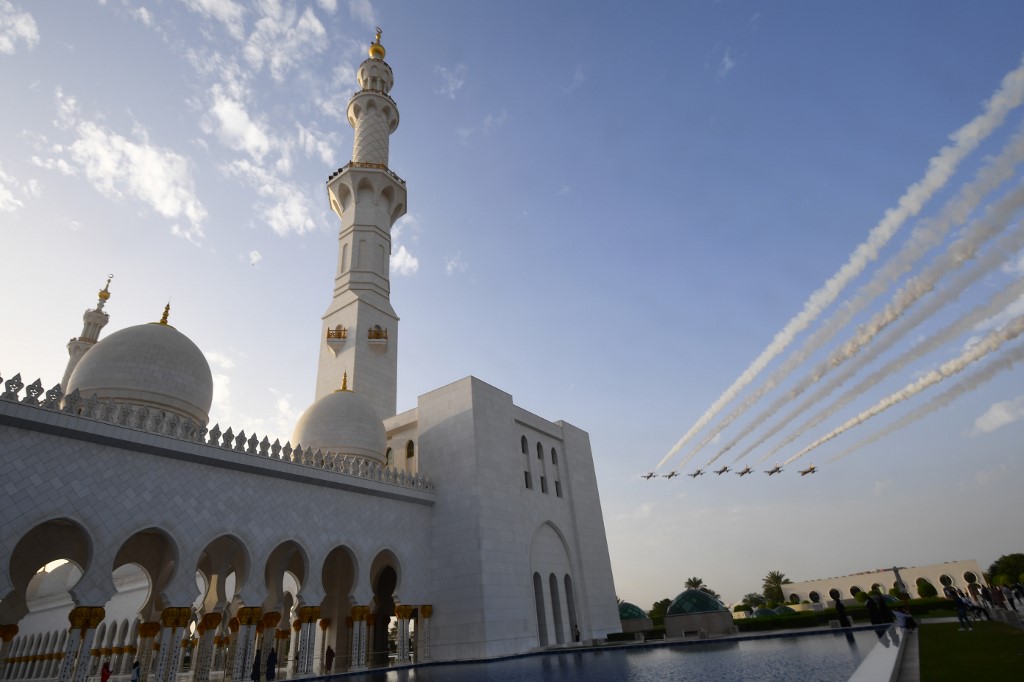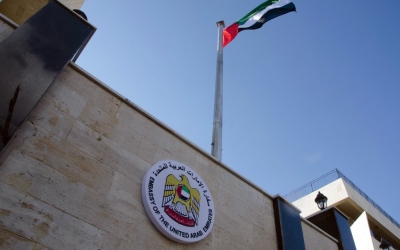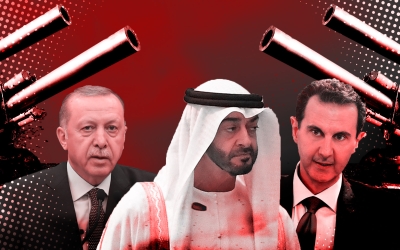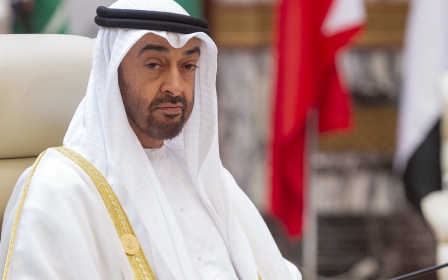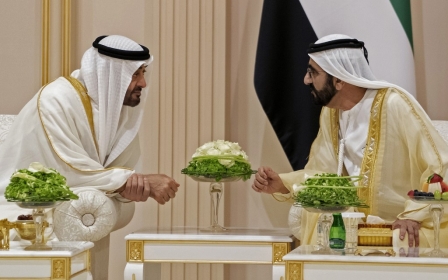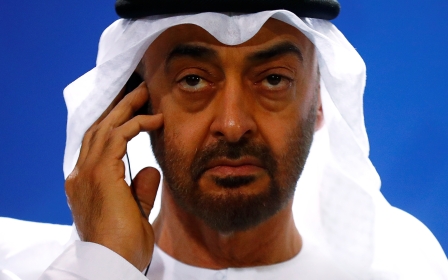Why Abu Dhabi is playing the Iran card
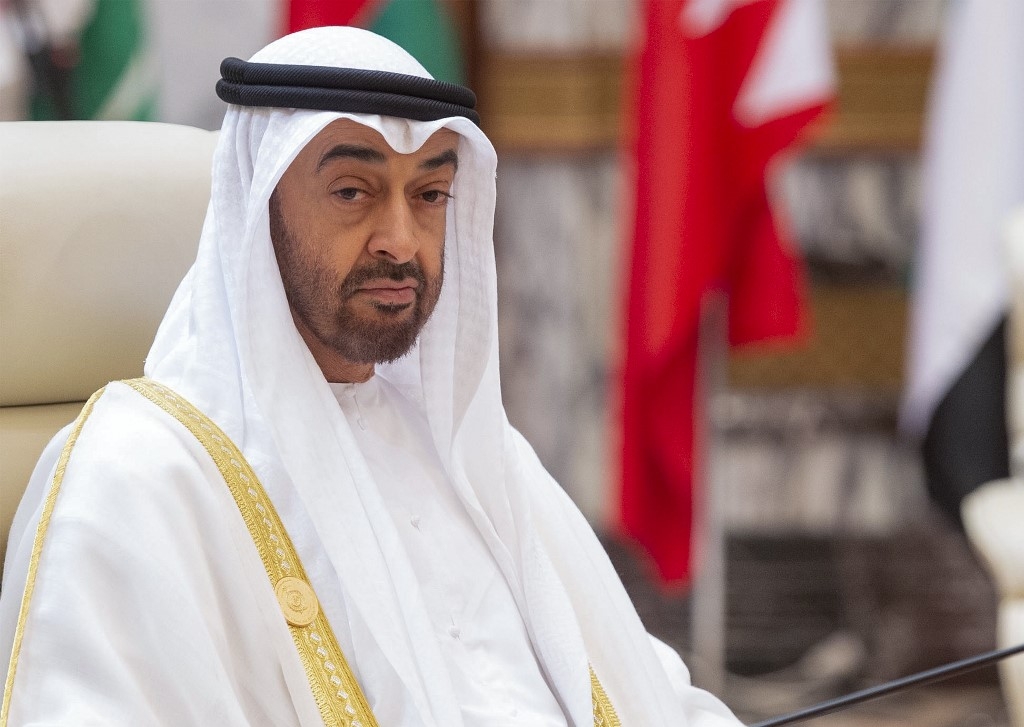
The commendable effort by the UAE to send much-needed medical aid to Iran amid the Covid-19 pandemic has surprised many who remember how belligerent Abu Dhabi’s rhetoric has been towards its northern neighbour.
For years in the early 2010s, Abu Dhabi was at the forefront of building a (dis)information network to sway Washington’s policymaking nexus to adopt a harsher stance towards the Islamic Republic.
Yet, as tensions have risen in the Gulf since the US withdrawal from the Iran nuclear deal, it has become increasingly clear to the UAE that it cannot rely on Washington to fight Iran to the last American.
Deafening silence
The direct attacks on Saudi oil facilities in Abqaiq and Khurais last September, which were blamed on Iran, were met with deafening silence from Washington. It has dawned on Abu Dhabi and Riyadh that the containment of Iran can no longer be achieved by military means – at least not without the capabilities and political will of Washington.
Over the past year, Abu Dhabi’s Iran strategy has noticeably changed, maintaining a facade of buy-in to the US’s failing Iran strategy while actively pursuing a pivot towards the East to counterbalance its over-dependence on an increasingly clueless and disoriented White House leading a superpower in demise.
The UAE's complex, and at times schizophrenic, relationship with Iran increasingly seems to follow the maxim of 'if you can't beat them, befriend them'
It is in this context that the UAE’s complex, and at times schizophrenic, relationship with Iran needs to be understood - a relationship that increasingly seems to follow the maxim of “if you can’t beat them, befriend them”.
In the early 2000s, the UAE had jumped on the Saudi bandwagon of securitising Iran as the greatest threat in the region, focusing much of its military procurement decisions on developing robust missile defence systems vis-a-vis Iran.
Amid the Obama administration’s rapprochement with the Islamic Republic, Abu Dhabi doubled down on its policy of military self-sufficiency against what was viewed as an expansive Iranian presence in the region.
Abu Dhabi even went so far as to lobby China to abandon its growing trade relationship with Iran – all while the other emirates in the north of the country drove a more conciliatory policy.
Dubai, as the UAE’s financial and business hub, benefitted the most from the UAE’s $19bn trade with Iran and had little interest in cutting ties with Tehran. Companies based in Dubai and the northern emirates were actively helping to smuggle oil out of Iran to bypass US sanctions.
Global ambitions
The evolution of the UAE’s ambiguous Iran policy has accelerated with the growth of the domestic, regional and even global ambitions of Abu Dhabi’s ruling elite. The Arab Spring and the rise of an independent civil society with the potential to overthrow the ancien regimes reprioritised threats to regime security in the UAE’s capital.
Crown Prince Mohammed bin Zayed (MBZ) realised that the counterrevolutionary cleansing effort that would see the UAE morph increasingly into a surveillance state could be exported to other parts of the MENA region post-2013, in a void left by a retreating West and a Qatar counting its losses.
The UAE’s instrumental role in helping to overthrow Egyptian President Mohamed Morsi in 2013, and in helping warlord Khalifa Haftar to usurp the political process in Libya since 2014, gave MBZ the confidence that Abu Dhabi could punch way above its weight to build an Emirati mercantile empire supported by an authoritarian axis responding to its orders. And Iran, albeit a nuisance at times, was looking less and less like a threat to this Emirati project.
As Abu Dhabi consolidated its power over the seven-emirate federation, the “Iran card” could be played to bring the northern emirates in line, most notably Dubai.
Clamping down on illicit oil activities with Iran or Iranian money laundering in Dubai is thereby as much a means to please the Trump administration, as it is a means to clip the wings of any ambitions in Dubai, Sharjah or Ras Al Khaimah to maintain an independent link to the Islamic Republic.
The Iran card can also be played in Washington to support the narrative of Abu Dhabi as a reliable ally in support of the Trump administration’s “maximum pressure” policy. Abu Dhabi’s belligerent anti-Iran rhetoric has kept Washington engaged, prompting the US to turn a blind eye to Emirati international law violations in Libya and war crimes in Yemen.
Maximum pressure
In the summer of 2019, however, with the risks mounting of the US escalating its maximum pressure campaign against Iran militarily, Abu Dhabi realised that balancing concerns for national security with an increasingly unhinged US Iran policy would become a dangerous tightrope walk.
Thus, while nominally supporting US efforts to contain Iran’s activities in the region, there were increasing signs of direct engagement with Iran in an attempt to deescalate.
The fact that the UAE stopped long before pointing the finger directly at Iran when tankers were attacked off the shore of Fujairah last year, is evidence of a strategic reorientation in Abu Dhabi vis-a-vis Tehran, from confrontation to engagement.
And in Yemen, where the UAE was believed to be fighting the Houthis as Iranian surrogates, Abu Dhabi redirected its focus towards securing access to the Indian Ocean via its own surrogate, the Southern Transitional Council – much more to the detriment of Saudi Arabia’s Yemen policy than Iran’s Yemen policy.
Meanwhile, the UAE’s proactive response to Covid-19 at home has served as a means for Abu Dhabi to project power overseas. Its aid to Iran comes on the back of a more assertive Abu Dhabi, building alliances and partnerships to consolidate its authoritarian axis.
Playing the role of a key interlocutor with the triple axis of Russia, China and Iran, Abu Dhabi hopes to exploit the Covid-19 crisis to get promoted in the great power game of a post-US world.
With growing ties to Putin’s deep state and China’s heart of power, Abu Dhabi’s support for Iran amid the coronavirus crisis is part of a new trajectory to pivot to the East as the US and Europe are forced by Covid-19 to surrender ever more hard and soft power globally.
The views expressed in this article belong to the author and do not necessarily reflect the editorial policy of Middle East Eye.
Middle East Eye propose une couverture et une analyse indépendantes et incomparables du Moyen-Orient, de l’Afrique du Nord et d’autres régions du monde. Pour en savoir plus sur la reprise de ce contenu et les frais qui s’appliquent, veuillez remplir ce formulaire [en anglais]. Pour en savoir plus sur MEE, cliquez ici [en anglais].



